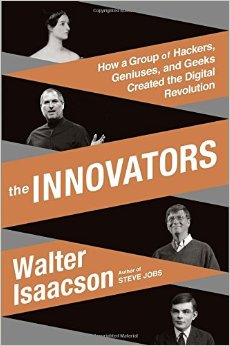TRANSLATE THIS ARTICLE
Integral World: Exploring Theories of Everything
An independent forum for a critical discussion of the integral philosophy of Ken Wilber
 David Christopher Lane David Christopher Lane, Ph.D.
Professor of Philosophy, Mt. San Antonio College Lecturer in Religious Studies, California State University, Long Beach Author of Exposing Cults: When the Skeptical Mind Confronts the Mystical (New York and London: Garland Publishers, 1994) and The Radhasoami Tradition: A Critical History of Guru Succession (New York and London: Garland Publishers, 1992). SEE MORE ESSAYS WRITTEN BY DAVID LANE
DIGITAL BAPTISM
AND THE IMPACT OF A.I.
David Lane
In a sense, we are becoming hyper human and our desires and fears are becoming magnified in an accelerated turnstile.
In reading Elliot Benjamin�s recent essay [“Digital Existentialism or ‘Human’ Existentialism?”], I can well understand how he could see my use of the term “digital existentialism” as oxymoronic. However, my purpose in utilizing these two terms in such an odd juxtaposition was to emphasize a future world where cyberspaces (versus “natural” spaces) become our daily habitat. In such a hypertext universe, there is no absolute meaning, particularly when almost anything is virtually possible. Thus, in this scenario, we—the augmented intelligence—must make our own meaning in such a digital landscape. This dovetails with the early origins of philosophical existentialism, where “the individual's starting point is characterized by a sense of disorientation and confusion in the face of an apparently meaningless or absurd world.” [see Sartre's and Camus� writings for more on this.]
 But the “world” in the future is binary...
But the “world” in the future is binary...
But the “world” in the future is binary and hence it portends something quite different in character than what Kierkegaard and his early 20th century successors confronted. It is for this reason that I wished to place the adjective “digital” before the noun existentialism, so to clearly demarcate what is in store for us.
I agree with Elliot Benjamin when he writes “we are talking about the essence of the deepest experiences of what it means to be human.” Yes, but when the world turns inside out (quite literally so), then as humans we are confronted with quite a different cosmology than what our ancestors confronted, even if both share a Camusian like angst about what it all means.
Our human nature is being tinkered with, even if we may hold out hope that it would be otherwise.
Yes, I can appreciate (and even applaud) that Elliot Benjamin and others can and will continue to resist a complete digital baptism, but I think the hypertext tsunami is much larger than we might at first suspect. We are already seeing the impact of this growing tidal wave in our youth culture that live in an interactive game culture that is on 24/7.
It is not that I wish to “conceptualize our existential experiences in digital form” but rather that such digitization (like the analog world it succeeded) brings its own existentialist terror. When I concluded my essay with the metaphorically rich sentence, “We sacrificed our privacy for never ending company and in return we became the flickering screen that never shuts off,” it doesn�t mean that this was some kind of blissful utopia. As we all know from our own experiences, we can be deeply alone in the midst of a large party. Facebook, just to take one illustrative example, hasn�t necessarily made us less lonely, even if we are daily engaged in our friends' continual status updates. But this cyber medium does create problems of its own which echo back to our own human condition, particularly when the old limiting rules (with their invariable time lags and frustrations) are blurred into an illusory cornucopia of whatever you want is fulfilled, even if only digitally.
In a sense, we are becoming hyper human and our desires and fears are becoming magnified in an accelerated turnstile or, more accurately, at the perpetual mouse clicks of our left or right hand.
The Indian rishis of old spoke at length about how the world is governed by Maya, sometimes defined as “that which betrays its real origin.” In the future it would appear that Maya has taken on hypertext garb and has bewitched us with its innumerable world wide web promises.
And, yet, if we still retain some semblance of our human nature (or is that programming?), a larger question looms: what purpose or meaning do our lives have in a universe created by 0�s and 1�s?
If, however, we transcend our initial given states, and become “trans-human” as some theorists predict, then it may well be that Elliot Benjamin is correct when he says, “at that point I must also say that I would no longer consider myself to be �me,� and whatever I would be would not be existential.�"
But perhaps there is a sharp divide between augmenting intelligence and Nick Bostrom�s superintelligence, where the former retains much its human character whereas the latter eliminates it in favor of pure computation unencumbered by flesh bound desires and needs.
Walter Issacson, author of the highly readable The Innovators argues that the dream of pure Artificial Intelligence (surpassing humans in all capacities) has proven to be an illusive one, where promises of its fulfillment are invariably twenty years off. However, Issacson believes that connecting humans with machines (the “other” A.I.—augmenting intelligence) is a deeply fruitful endeavor and has already paid dividends on a number of fronts, not the least of which is how we communicate with each other daily.
It is a truism that humans are becoming cyborgs and it has had a long history—from the rudimentary, such as Egyptians using wooden teeth, to the truly transformative, such as artificial heart transplants and neuronal chip implants. Where this will ultimately lead nobody precisely knows, except that both futurist camps (pure A.I. versus human connective A.I.) agree that it will alter the course of human interaction.
Perhaps the best yardstick to see where our technology is heading is to see how disruptive it has been in our own lives and how it has taken over our leisure time. When I was a child of the 1950s and 1960s, we spent most of our time outdoors. While we certainly did watch too much television (those endless repeats of Gilligan�s Island still haunt me to this day), the push was towards sports and interactive game play on a basketball court or a football field. Today, as any new parent knows too well, kids spend much more time indoors because they can play fantastic online games such as Minecraft, Counter Strike Global Offensive, and League of Legends—all the while communicating in real time via audio and streaming video.
If I were frustrated as a child not winning a baseball game, my two young sons shows similar frustration when their Wi-Fi doesn�t work properly. It is here where Marshall McLuhan�s mantra looms large: the message is the medium (and vice versa). And hence in those respective arenas, so do our existential musings arise. This is what I mean by digital existentialism and it seems that we are entering into a new frontier where the boundary lines of what it is to be human may indeed change and with it our ultimate concerns. But then again, it could well be that Nick Bostrom was right all along in his pregnant 2003 paper where he suggested that we may already be living in a computer simulation. If that is so (arguable as it may at first may sound), then all human beings are already digital existentialists and have been so from the beginning of time. Or, should I say, since digital download from some unknown super gamer?
|
 David Christopher Lane, Ph.D.
Professor of Philosophy, Mt. San Antonio College Lecturer in Religious Studies, California State University, Long Beach Author of Exposing Cults: When the Skeptical Mind Confronts the Mystical (New York and London: Garland Publishers, 1994) and The Radhasoami Tradition: A Critical History of Guru Succession (New York and London: Garland Publishers, 1992).
David Christopher Lane, Ph.D.
Professor of Philosophy, Mt. San Antonio College Lecturer in Religious Studies, California State University, Long Beach Author of Exposing Cults: When the Skeptical Mind Confronts the Mystical (New York and London: Garland Publishers, 1994) and The Radhasoami Tradition: A Critical History of Guru Succession (New York and London: Garland Publishers, 1992).
